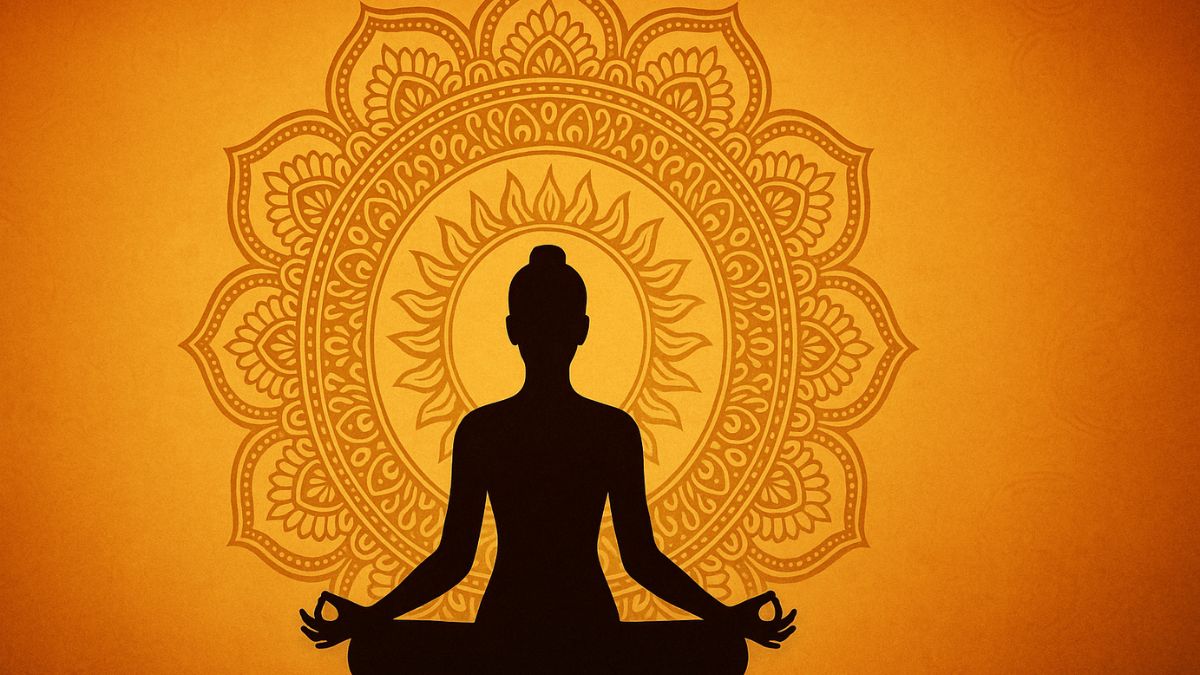New York: There’s something undeniably powerful about a prayer that has echoed through centuries, whispered by sages and sung by everyday seekers alike. The Gayatri Mantra isn’t just another chant—it’s a timeless spiritual vibration that holds space for light, clarity, and transformation. Whether you’ve grown up hearing it in your grandmother’s voice during sunrise, or recently stumbled upon it during your mindfulness journey, this mantra has a way of finding people right when they need it most.
In a world where we’re constantly bombarded by noise—online and offline—this ancient Vedic mantra offers a pause, a breath, and a reset. Its 24 syllables carry more than just phonetic beauty; they carry deep meaning rooted in consciousness, wisdom, and the divine light that resides in all of us. You don’t need to be religious to feel its pull. The Gayatri Mantra is as much about awakening your inner self as it is about revering the universe.
So if you’ve been curious about its true meaning, the correct pronunciation, the benefits of chanting it, or even how it can shift your energy—this is your go-to guide. Let’s unpack the Gayatri Mantra together, line by line, heart to heart.
Also Read: ‘You Don’t Need to Talk About the Pain to Heal It’: Ira Kukrety on Energy, Grief & Soul Work
Gayatri Mantra in English – Full Lyrics
Sanskrit:
ॐ भूर्भुवः स्वः
तत्सवितुर्वरेण्यं
भर्गो देवस्य धीमहि
धियो यो नः प्रचोदयात्॥
Transliteration:
Om Bhur Bhuvah Swaha
Tat Savitur Varenyam
Bhargo Devasya Dheemahi
Dhiyo Yo Nah Prachodayat
Gayatri Mantra Meaning in English (Line by Line Breakdown)
Let’s break it down into its core parts so you can feel the meaning as you say it:
“Om Bhur Bhuvah Swaha”
Meaning: These three words are known as the “Mahavyahrti” — the great utterance. They represent the three planes of existence:
- Bhur – the physical world
- Bhuvah – the mental/emotional world
- Swaha – the spiritual/heavenly world
Together, they serve as an invocation for universal divine energy.
“Tat Savitur Varenyam”
Meaning: “We meditate upon the most adored Supreme Lord, the creator.”
- Tat means “that” (referring to the divine),
- Savitur means “of Savita, the sun or divine light,”
- Varenyam means “fit to be adored or worshipped.”
“Bhargo Devasya Dheemahi”
Meaning: “May the divine light illuminate our intellect.”
- Bhargo refers to the radiance or purifying light of the divine,
- Devasya means “of the deity,”
- Dheemahi means “we contemplate or meditate.”
“Dhiyo Yo Nah Prachodayat”
Meaning: “May this divine light inspire and guide our mind and understanding.”
- Dhiyo means “intellects,”
- Yo means “who,”
- Nah means “our,”
- Prachodayat means “may inspire.”
Combined Essence:
“We meditate on the divine light of the supreme creator. May it inspire our thoughts and awaken our inner wisdom.”
Benefits of Chanting the Gayatri Mantra Daily
1. Calms the Mind and Nervous System
Chanting the Gayatri Mantra activates the parasympathetic nervous system, helping your mind slow down and your body shift from “fight or flight” to “rest and restore.”
2. Boosts Focus and Clarity
It’s not just spiritual—chanting this mantra helps stimulate the brain’s frontal lobe, enhancing focus, creativity, and mental clarity.
3. Connects You to Divine Light
The mantra is a direct invocation of Savitur, the divine source of light and energy. Many practitioners report a sense of peace, warmth, or emotional clarity after regular chanting.
4. Cleanses Negative Energy
Whether you’re feeling heavy emotionally or stuck mentally, the vibrational energy of this chant acts like a spiritual detox for your energy field.
5. Encourages Self-Realization
Over time, the Gayatri Mantra helps you become more aware of your thoughts, habits, and inner patterns—creating space for personal transformation.
When and How to Chant the Gayatri Mantra
- Best Time: Sunrise, before meals, or sunset.
- How Many Times: Traditionally, it’s chanted 3, 9, 27, or 108 times (using a mala).
- Where: Ideally in a quiet space or sacred corner of your home. Outdoors during sunrise is even more powerful.
- How: Sit comfortably, close your eyes, and chant it slowly, feeling the meaning behind each word.
Is the Gayatri Mantra Meant for Everyone?
Yes—regardless of gender, religion, or background, the Gayatri Mantra can be embraced by anyone seeking spiritual clarity or emotional grounding. In fact, many Western meditation coaches, yoga practitioners, and even neuroscientists have explored its calming effects.
That said, approach it with respect. It’s not just a song—it’s sacred sound therapy from one of the world’s oldest spiritual systems.
Why the Gayatri Mantra Still Matters Today
In a time where mental clutter, anxiety, and overstimulation are rampant, the Gayatri Mantra stands tall as a timeless reminder: peace begins within. You don’t need to chant it perfectly. You don’t even need to believe in God. But if you let these sacred syllables into your routine, you just might start seeing your world—and yourself—a little more clearly.







